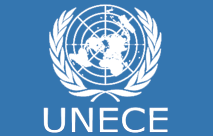About
Objective
As part of its efforts to support an increased contribution of trade to economic development, UNECE conducts demand-driven national assessments of regulatory and procedural barriers to trade.
The assessments use a comprehensive evaluation methodology, which combines desk research with actor-oriented questionnaires to capture regulatory and procedural constraints throughout the international supply chains and trace their impact on the country’s ability to achieve sustained growth. In so doing, the assessments highlight the channels through which trade influences employment generation, economic inclusion and enterprise level technological capability, thereby providing a sound basis for establishing multi-faceted recommendations for supporting a whole-of-government approach at the national level as well as SDG 9 (Industry, Innovation and Infrastructure) and SDG 17 (Partnership for the Goals)
Consensus Building
Establishing a participatory approach
A national focal point (usually a line Ministry responsible for horizontal coordination of economic and trade reform and development efforts) is identified in consultation with the country to act as the UNECE major counterpart and assume the responsibility of ensuring consultations with relevant public and private sector stakeholder throughout the review process. In some countries, a national advisory committee or working group is established during the early stages of the assessment process to bring together relevant public and private sector stakeholders and act as the UNECE counterpart.
Preparation
The UNECE secretariat undertakes a desk study of relevant policy documents as well as previous studies to adapt the methodology to the national context and ensure policy responsiveness to national priorities. In some cases, the desk study is completed by a fact-finding mission
Assessment process
In-depth interviews are carried out with public and private sector stakeholders, using actor oriented questionnaires adapted to national context. A review of trade related legislation, especially those underpinning non-tariff measures, and trade agreements is also conducted. The results of the legal analysis and the interviews are compiled in a comprehensive study, which provides practical action-oriented recommendations for addressing immediate and long terms needs.
Stakeholder meeting
The study is presented to relevant public and private sector stakeholders during a “stakeholder meeting” , which is organized in the country under review. Stakeholders are also invited to provide the secretariat with written comments.
Publication
The secretariat revises the draft study for final publication.
Follow-up
The secretariat together with the Government pool efforts to:
- Bring forward the needs of the country in question to the attention of UNECE member States during the annual session of the Steering Committee on Trade Capacity and standards
- Compile the recommendations emerging from the study into a national action plan to guide implementation in a manner that allows for sequencing interventions and facilitation their integration into national and regional development efforts
- Integrate the recommendations into the country’s United Nations Development Assistance Framework (UNDAF)
- Develop, in collaboration with other UN agencies and international organization, project documents for supporting the Government’s resource mobilization efforts
